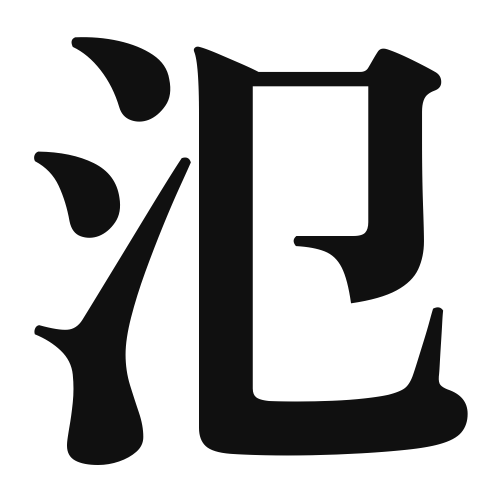1. Overview of Meaning
The kanji “氾” (han) generally means “to overflow” or “to flood.” It conveys the idea of water spilling over its boundaries, often used in contexts related to rivers or large bodies of water.
2. Formation and Radical
Formation of the Kanji: The kanji “氾” is a phonetic compound (形声文字), which combines the water radical (氵) with the phonetic component “反” (han). This structure suggests a connection to water and the action of overflowing.
Radical: The radical of “氾” is氵, which is associated with water-related meanings.
3. Examples of Usage
Common Words and Phrases:
- 氾濫 (はんらん, hanran) – flood, inundation
- 氾濫する (はんらんする, hanran suru) – to overflow, to flood
Example Sentences in Daily Conversation:
- 最近の大雨で川が氾濫した。
(Recently, the river overflowed due to heavy rain.) - 氾濫の危険があるので、注意してください。
(Please be careful as there is a risk of flooding.)
4. Synonyms and Antonyms
Similar Kanji:
- 溢れる (あふれる, afureru) – to overflow (more general, can refer to liquids or emotions)
- 流れる (ながれる, nagareru) – to flow (refers to the movement of water)
Antonyms:
- 干上がる (ひあがる, hiagaru) – to dry up (opposite of overflowing)
- 収まる (おさまる, osamaru) – to settle, to fit (indicating containment)
5. Cultural and Historical Background
Connection to Japanese Culture: The concept of flooding is significant in Japan, where heavy rains and typhoons can lead to natural disasters. The kanji “氾” is often used in discussions about environmental issues and disaster preparedness.
Proverbs and Idioms:
- 「氾濫する思い」 (はんらんするおもい, hanran suru omoi) – an overwhelming feeling, often used to describe strong emotions that cannot be contained.
